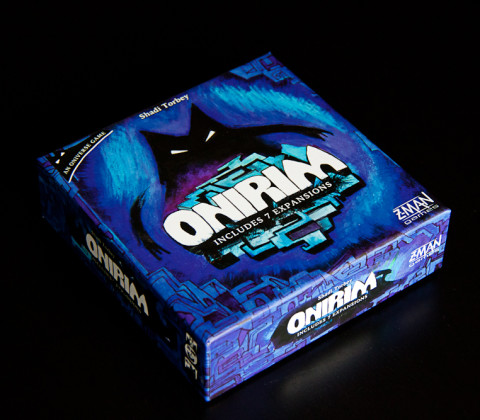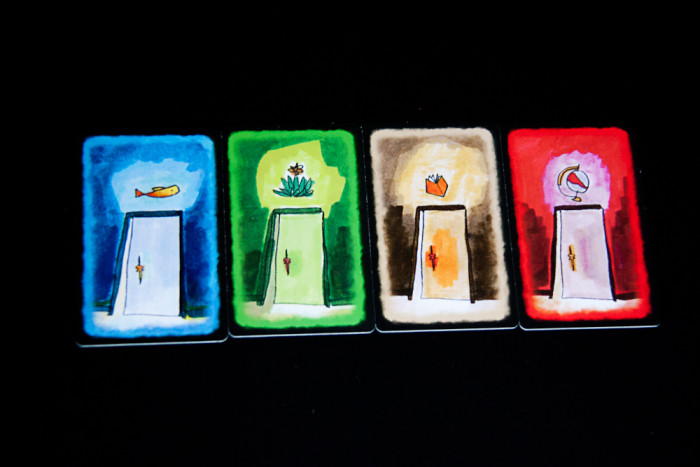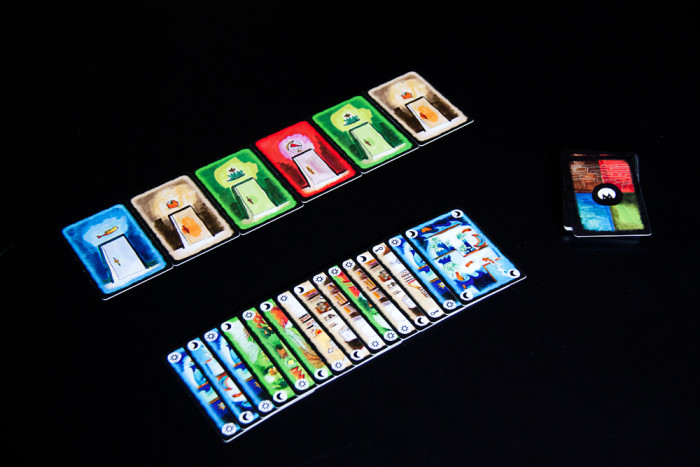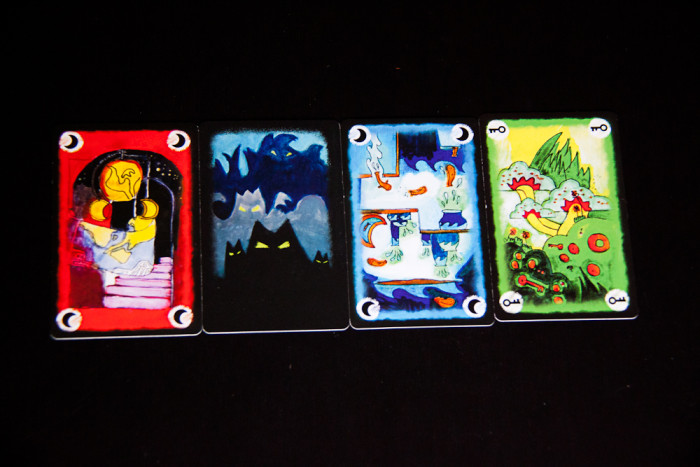

Onirim: A labyrinth lost within itself
The realm of dreams does not become the topic of games too frequently. Board games especially with their focus on the tangible and the tactile seem a strange fit to tackle the amorphous fleeting nature of what our subconscious produces while we sleep. Onirim by Z-Man games gives it a shot and aces the aesthetics – not an easy task by any stretch of imagination. The game stumbles in the mechanics though as the gameplay tends towards simplistic abstraction instead of fully exploring the wonderful world the game creates. Shall we dive deeper? Close your eyes and welcome to Onirim.How it works:
You are a wanderer lost in a labyrinth of dreams. Your journeys took you too far down the rabbit hole and now you need to find a way out before the nightmares consume you. Onirim is a solo game with a two-player co-op variant where the players work through a deck of cards aiming to collect a certain number of Door cards to leave the labyrinth.
There are a couple of ways to obtain the doors – either by building a sequence of cards of the same colour in the “path” you are laying out or having a specific key card on hand when you randomly draw a card from the deck to replenish your hand. Not all cards are positive – some are Nightmares that daze and confuse, forcing you to lose progress or wasting precious time. If you manage to obtain all the doors – you win and you get to wake up. If the deck runs out before you are able to do that – you lose and you are stuck in the labyrinth forever.
How it plays:
The game is basically a puzzle that forces you to weigh your strategy in pursuing the slow but reliable way of obtaining doors (laying out a pattern of cards) vs. counting on a lucky draw that would score you a door in a much easier way. Another interesting decision point comes when you draw a Nightmare card. It sets you back but the way that happens is up to you – there are a few ways to deal with it and this selection makes you consider your progress and pick the least of several evils.
The mechanics of the game are very simple and reminiscent of traditional card solitaire in their extreme abstraction. While some decisions are interesting – most have an obvious answer. This makes the game go quick and uneventful. On one hand it makes Onirim a solid (if unspectacular) choice for a quick solo option. On another – it fails to produce memorable moments and fully engage you. The games involve lots of shuffling (and it really helps that the cards are glossy – easy to do so) and most are over in 20 min or less.
The two-player variant seems to be more an afterthought and does not provide particularly engaging interaction. The game was clearly meant as a solo offering and works better that way.
How it feels
Onirim wins the “components match the theme” award for me, easily beating any other game in that regard. The crude, abstract artwork with the menacing pointy-eared, yellow-eyed Nightmare figure clicks on a very subconscious level and draws you in to the wonderful world these visuals create. Even the interior of the small box is amazing – strange diagonal flaps mimicking the Nightmare form, the rich velvet insert to hold the cards, the inexplicable wooden Nightmare figurine inside (I still have not found a use for it but it is awesome). The artwork on the cards also fits the perfect surreal format – drawn as if by a child but with a vivid feeling and mood behind each card – every physical aspect of the game contributes to the strange world that the creators tried to dream up.
The game amazes you in that it creates this world that you believe you can get lost in – you are now ready to immerse yourself in the game to escape this labyrinth! And that’s when the game lets you down. The mechanics it presents you with are much too abstract and never strengthen the connection to the theme. The decisions are simplistic and it can feel that things are just happening to you as opposed to you driving the narrative. It offers a quick tight solo gaming experience but compared to its competition in this genre (Friday easily comes to mind) it loses out in richness and engagement level.
The second edition of Onirim in stores now comes with seven (!) mini-expansions that you can mix in. Unfortunately these did little to improve the experience for me. Strangely the mechanics for these add new elements to the game and then focus the players’ energies on removing these new elements to basically bring the game back to the original difficulty.
In Conclusion:
Onirim seduces players with its gorgeous presentation and innovative theme but under-delivers on what one expects. It is still a nice light option if you want a quick game, but this dream is more of a snooze than a power nap.





Comments are Disabled